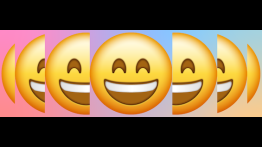A Familiar Face: Emoji Design over Time
Monday, July 22, 2019, 6:30 - 8:30pm

It is easy to think of Emoji as being glib, existing without a history, or created without a designer. Nothing could be farther from the truth! Because they are so ubiquitous, it is important to inspect them with a critical eye — where they came from, what purpose they serve, why do they look the way they do, who made them that way, and how their design subconsciously affects our communication. From 90s mobile phones and the 1964 Tokyo Olympics, to Unicode and Apple, Colin Ford will trace emoji back to their roots, and speculate on their future.
Register here.
Colin Ford is a New York-based typeface designer at Hoefler & Co. He is a graduate of the Type and Media masters program at the Koninklijke Academie van Beeldende Kunsten (KABK) in The Hague, and of the Maryland Institute College of Art (MICA) in Baltimore. Since joining H&Co in 2011, he has worked on a variety of projects, including the design of Chronicle Hairline and Whitney Narrow. He has lectured and taught workshops at the Atelier National de Recherche Typographique, The Letterform Archive, The Cooper Union, and MICA.
Located in The Great Hall, in the Foundation Building, 7 East 7th Street, between Third and Fourth Avenues




